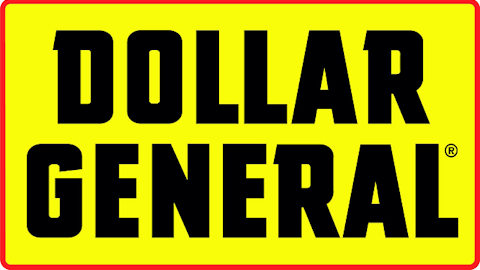
Right now, companies like eBay Inc (NASDAQ:EBAY) and Amazon.com, Inc. (NASDAQ:AMZN) maintain a competitive advantage over physical retailers in that they can sell products free of sales taxes. Not only has this increased profit margins, but online retailers also save money on location rent by only ordering product as requests come in. Amazon.com, Inc. (NASDAQ:AMZN), however, supports the bill while eBay Inc (NASDAQ:EBAY) is staunchly opposed to it.
Wal-Mart Stores, Inc. (NYSE:WMT) and Target Corporation (NYSE:TGT) are natural beneficiaries of the tax (remember, it partially removes online retailers’ price advantages), and thus they support it.
For the purposes of this article, let’s assume that the bill’s passage is inevitable and work from there. Who wins, who loses, and why?
Amazon has voiced its support of the bill, but is that support misguided?
Amazon.com, Inc. (NASDAQ:AMZN)’s rapidly increasing revenue ($61 billion last year, with analysts projecting a 37% increase in the next few years) indicate that it will be hit hard by the tax, but from a corporate standpoint there will be little effect, and it might even benefit the company.
Amazon.com, Inc. (NASDAQ:AMZN) has moved toward a same-day shipping model, which entails building warehouses in almost every state. The upshot of this is that for the most part it is required to collect those taxes anyway, so a requirement that the company collects sales tax would be moot and would have no substantive effect. The same-day shipping nearly eliminates the immediacy advantage that brick-and-mortar stores have, so this is a win-win for Amazon, even though it must collect sales tax.
On top of this, actually imposing the tax poses a logistical issue for online companies, given the panoply of state tax rules that exist. This issue is larger for small companies, whereas Amazon.com, Inc. (NASDAQ:AMZN) won’t be affected so much. Essentially the sales tax makes life harder for Amazon’s competitors, which is great for Amazon.
The takeaway with regards to Amazon.com, Inc. (NASDAQ:AMZN) is that it would indeed be helped. While it would lose some of its pricing advantages, it would also lose competition online while becoming increasingly competitive with physical retailers. This is good for Amazon, but I’d consider the company a stock to hold. If small businesses adapt better than expected, it could spell trouble for Amazon.
eBay is worried, but why?
eBay Inc (NASDAQ:EBAY) has been outspoken against the definition of a small business in the Act, which places a revenue cutoff at $1 million. The company believes that this should be higher, to the tune of $10 million.
This principle isn’t a bad one, but eBay dodges any question about how many sellers this would actually affect. It seems like eBay Inc (NASDAQ:EBAY) is making much ado over nothing—the majority of its sellers would not be affected by the law. Since most sellers wouldn’t have to collect the tax, eBay Inc (NASDAQ:EBAY) would remain a thrift-shopper’s go-to online store. A few prolific sellers would have to collect the tax, but for the most part eBay Inc (NASDAQ:EBAY) would be unharmed by the tax.
eBay Inc (NASDAQ:EBAY)’s campaign against it seems to be a matter of principle, and should not affect its outlook. However, there are many other factors affecting a stock’s growth, so a decision to buy or sell should not be made on this news alone.
Brick-and-mortar retail stores come away on top
Target and Wal-Mart Stores, Inc. (NYSE:WMT) would both benefit directly from the enforcement of a sales tax. There are thousands of both stores all across the U.S., and if the price gap is closed by the Marketplace Fairness Act, it’s easy to see many consumers choosing the immediate gratification of a physical purchase over savings of just a few dollars.
Wal-Mart currently has a P/E ratio of 15.4, while Target Corporation (NYSE:TGT)’s is just below at 15.4. Investors would do well to consider the effect of the proposed law on earnings—both companies are expected to grow on pace with the industry, but if the law is enacted then we can expect the department store industry as a whole to grow more rapidly.
If and when the Marketplace Fairness Act takes effect, you’ll want your money in department stores and other physical retailers who could capitalize on an exodus from online shopping (especially from small online retailers). The exodus could be large or small, but regardless it will help Target Corporation (NYSE:TGT) and Wal-Mart Stores, Inc. (NYSE:WMT), and you’ll want to catch it on the way up.
The article Who Wins When Online Retailers Have to Collect Taxes? originally appeared on Fool.com and is written by Hunter Hillman.
Hunter Hillman has no position in any stocks mentioned. The Motley Fool recommends Amazon.com and eBay. The Motley Fool owns shares of Amazon.com and eBay. Hunter is a member of The Motley Fool Blog Network — entries represent the personal opinion of the blogger and are not formally edited.
Copyright © 1995 – 2013 The Motley Fool, LLC. All rights reserved. The Motley Fool has a disclosure policy.

